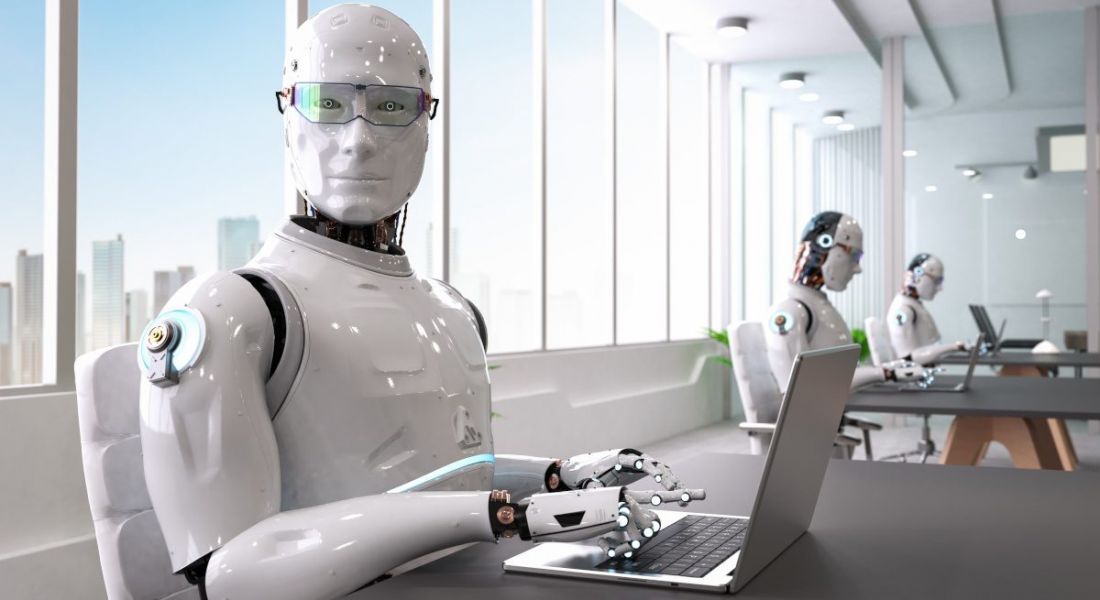AI presents challenges and opportunities for the future of work, according to this latest report.
Microsoft and LinkedIn have published the 2024 Work Trend Index, with the topic of AI dominating discourse.
The report highlighted growing fears that the continued deployment of AI technology in the workforce will result in job losses, as well as expose employers who lack the vision to successfully roll out a company-wide AI plan.
Amid fears of a shortage of talent in key roles and a failure to incorporate AI on a broad scale, new trends have emerged, with employees keeping their use of AI “under wraps” as they struggle “under the pace and volume of work”.
Looking forward, the report suggests key trends that will transform the workplace and bring AI technology from a place of experimentation all the way through the implementation phase.
No time like the present
In the last six months, the use of generative AI has almost doubled, as three-quarters of global knowledge workers use it in some form. It has become a crucial resource for workers, with 90pc of people stating AI technology saves time and 83pc finding it helps them “enjoy their work more”. However, more than half of people (53pc) worry that by using AI to complete their work they are essentially proving they are replaceable.
For Prof Karim R Lakhani, chair of the Digital Data Design Institute at Harvard, integrating AI is an opportunity not just to “work faster, but to work smarter”. Lakhani noted, however, the ethical implications of the technology, citing the importance of ensuring “technology elevates [a] teams’ creativity and aligns with ethical values”.
Aside from ethical concerns, cybersecurity has become a central issue as regards AI adoption. Figures show that 78pc of AI users in larger companies and 80pc in SMEs bring their own AI to work (BYOAI), with 52pc of people saying they use the technology to assist with their most important tasks. The report warns that this BYOAI approach and using AI tech in secret could weaken a company’s cybersecurity, at top priority for leaders.
Reasons given for the high demand for strategic AI in the workplace include, pace and volume of work, email overload, excessive meetings and after hours work. According to the report, workers are overwhelmed with “digital debt and are “under duress at work”, and as a result, they are turning to AI. Prof Michael Platt, a neuroscientist at the University of Pennsylvania, believes these challenges can be mitigated with the proper use of AI, explaining that we can’t settle on any one task if we are expected to jump to and fro. “When we’re constantly switching, we don’t work as well,” Platt said. “AI can help liberate workers from menial work and enable innovation and creativity.”
In this context, in the next five years, more than 40pc of leaders expect to “redesign business processes from the ground up with AI,” and believe that core roles will involve the training of AI bots and “ensuring the ethical use of AI”.
Upskilling the workforce
We likely have all heard something about AI posing a risk to jobs, but as this new report shows, there is another side to the story – “the hidden talent shortage”. Figures from the index show 85pc of people are considering a new job this year, but 55pc of employers are genuinely concerned that they will be unable to fill roles.
Hiring technical talent for AI rose by a whopping 323pc in the last eight years, but now employers are at a deficit when it comes to hiring non-technical talent with an aptitude for AI.
The report sheds light on a potentially worrying new trend, as 66pc of employers say they would not hire someone who did not have AI skills. Significantly, 71pc of leaders claim they would hire a less experienced candidate with AI skills.
For Dr Constance Noonan Hadley, an organisational psychologist at Boston University, this is the natural renegotiation of “the psychological contract” covering the “why of work.”
“Influenced by new generations, labour trends and the pandemic,” companies are having to re-address “the operational contract”, as AI puts “more power into the hands of workers in terms of the way the job gets done,” Hadley explains.
As AI continues to dominate the technology sector and employment landscape, AI courses, such as LinkedIn Learning, have “spiked 160pc among non-technical professionals, and 76pc of people think they need to upskill in order to stay competitive.
The argument that AI in the workforce has the potential to eliminate jobs is a valid one that needs to be heard; however, there is also evidence to suggest that “AI isn’t replacing their job but transforming it” and potentially creating new jobs. Data from the report shows that more than two-thirds of this year’s LinkedIn Jobs on the Rise (fastest-growing roles in the US) didn’t exist 20 years ago. Additionally, 12pc of recruiters are currently curating new roles linked specifically to generative AI and the job title of head of AI has also emerged as a significant “must-have leadership role”.
As AI continues to develop and adoption increases, it will continue to change many aspects of how we work. It is noted in the report that as we “reach the hard part of this tech disruption, turning experimentation into tangible business impact, companies that face the challenge head-on will surge ahead”.
“In this moment, fortune favours the bold.”
Find out how emerging tech trends are transforming tomorrow with our new podcast, Future Human: The Series. Listen now on Spotify, on Apple or wherever you get your podcasts.




